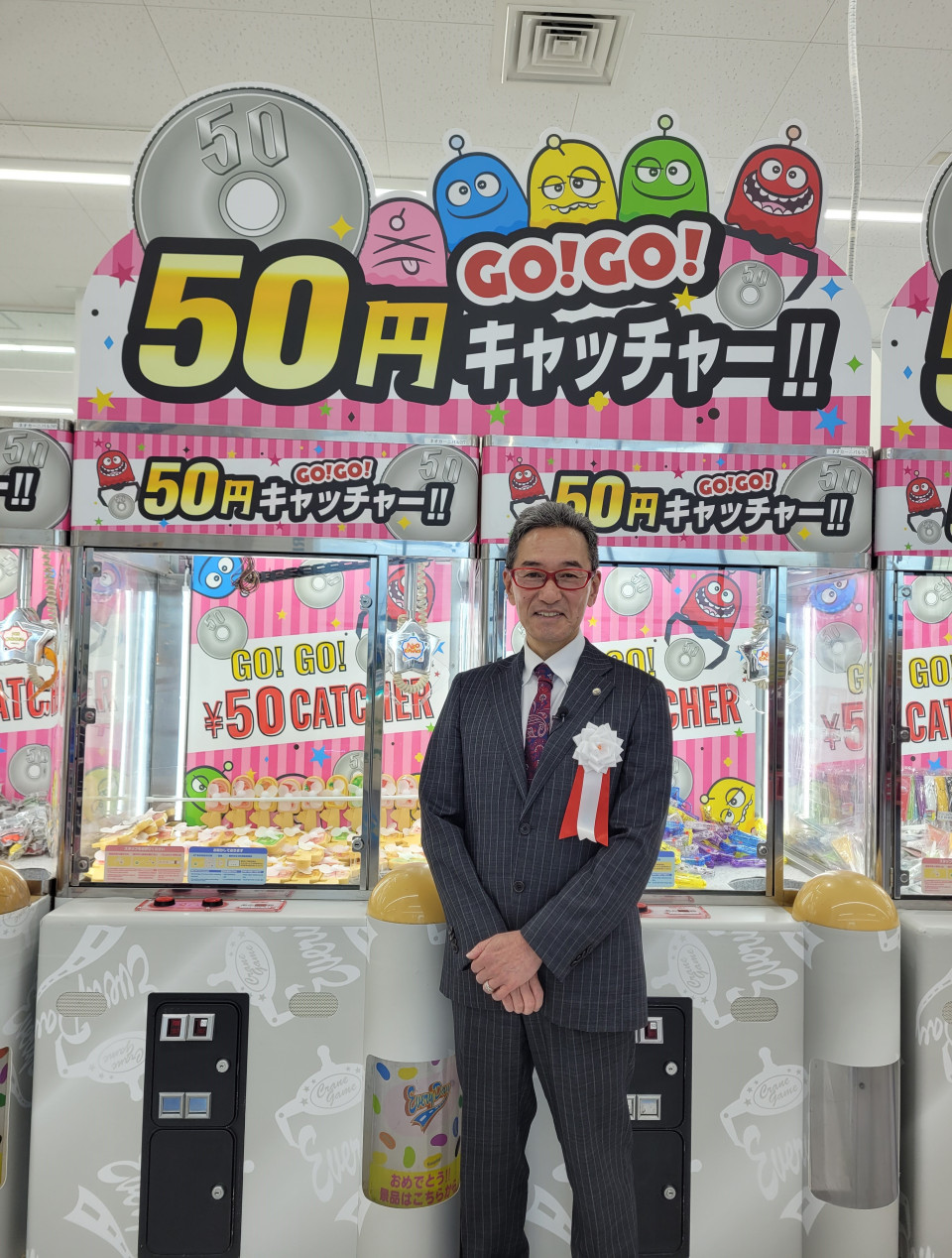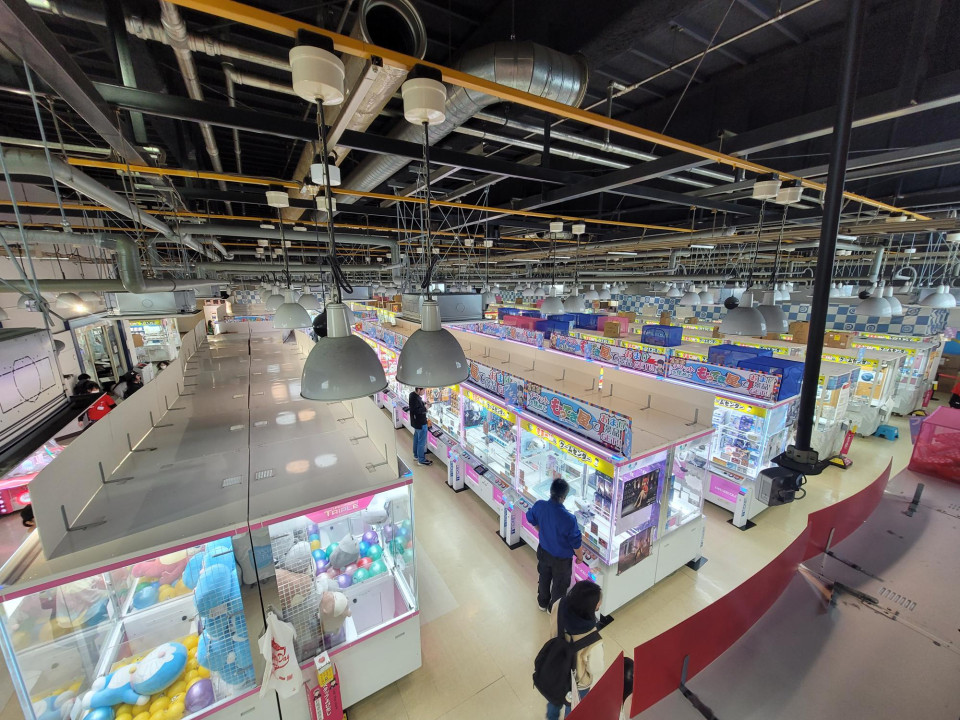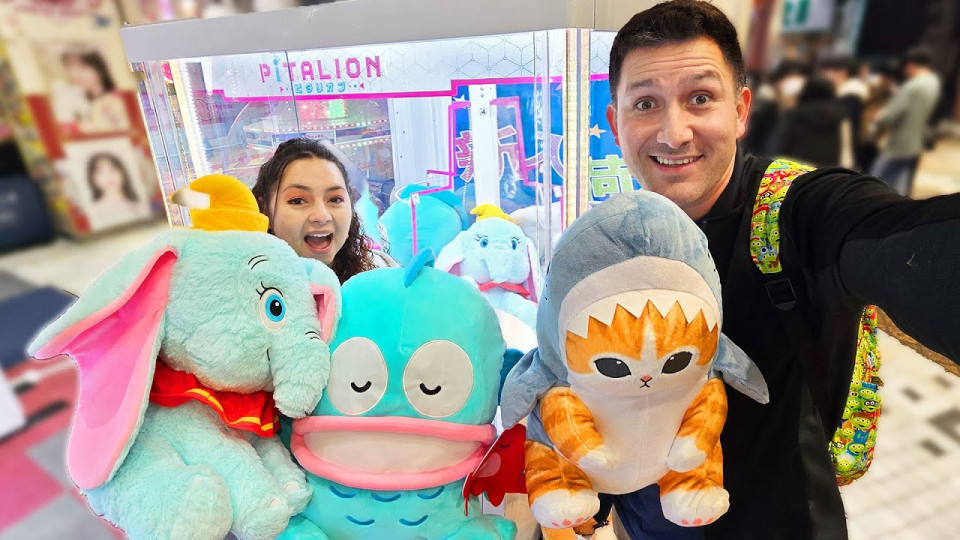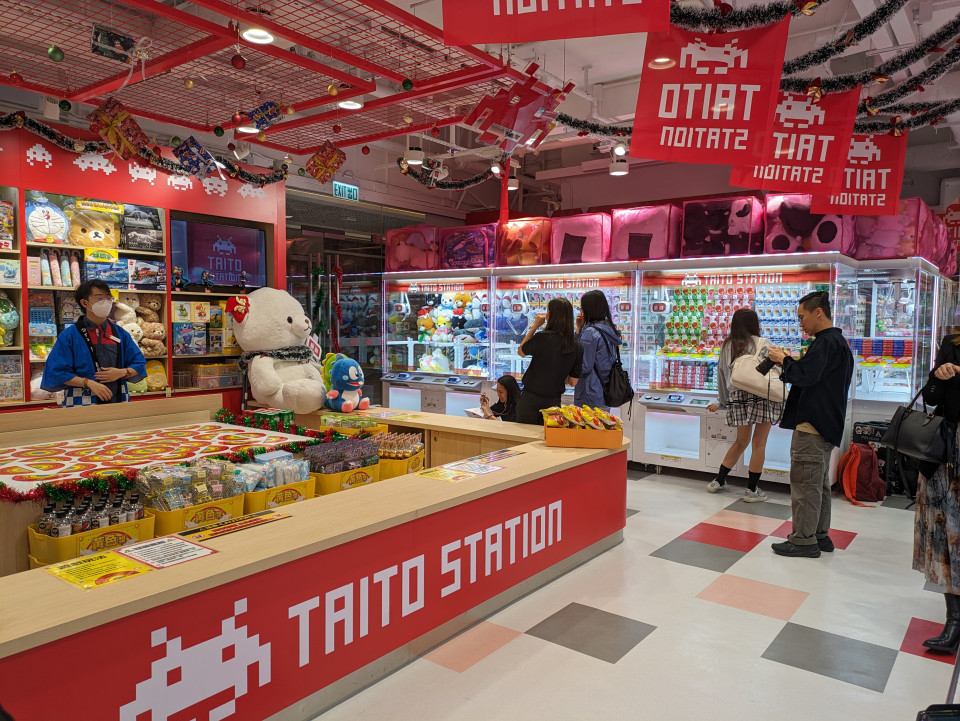Despite digitization rendering many businesses obsolete, crane game enterprises are a shining example of what can never be replaced by the online experience, with their physical prizes an anchor to their enduring appeal.
The Japanese game arcade industry, which took a significant hit due to the COVID-19 pandemic, has seen nearly 8,000 stores disappear over the past decade, with a 30 percent reduction in the last five years alone, a recent survey from credit research firm Teikoku Databank Ltd showed.
But claw machines have bucked the digital and console trend, with demand for prize games remaining high even during the pandemic. The Japan Amusement Industry Association says revenue from the games hit 306.2 billion yen ($1.9 billion) in fiscal 2021 and the genre now makes up nearly 70 percent of an amusement facility's overall sales.

"What we are doing may seem counterintuitive to the times, but we are dedicated to pursuing analog experiences. We use crane games as a tool to achieve this," said Hideo Nakamura, president of Toyo Corp.
The company operates Everyday, a warehouse-style crane game chain headquartered in Saitama Prefecture, which has only grown since it was given a second life in the city of Gyoda in 2011, with a fourth branch opened just over a week ago.
Nakamura, who has been in the crane game industry for over 30 years, previously operated four arcades in Saitama and Gunma prefectures under the Everyday brand. While he was forced to close all of them as times changed with the rise of smartphones and online games, he refused to give up.

"I firmly believe that analog experiences are stronger than digital ones. What excites human instincts are things right in front of us -- things we can touch, hear, and can feel vibrate," said Nakamura.
Nakamura's risky revival of Everyday faced headwinds at first. Despite the Gyoda store briefly generating buzz when it was awarded the Guinness World Record for the largest collection of crane game machines in a single venue, it failed to make a profit in its first two years of operation.
Nakamura said while he adopted a counterintuitive approach of opening the store in the middle of nowhere so it would stand out, the small population of the area also meant that the number of visitors struggled to grow.
"At that time we often joked that more insects than people would gather at night," Nakamura recounted with a laugh. "Instead of customers, it was always bugs, and so we remained in the red."
But things began to turn around after Everyday caught the attention of TV stations who were intrigued with the idea of a place filled with hundreds of used crane game machines in such a remote location.
In 2019, Nakamura opened a second branch in Yashio just outside Tokyo's northern edge, and a third in Tama, west Tokyo, in July 2023. All branches are located in relatively rural areas, with the fourth store that opened in Okegawa earlier this month also continuing that trend.
"Our concept isn't about having the newest machines or the best location; it's about how much we can make our visitors smile," Nakamura said. "To exaggerate, it's like Tokyo Disneyland -- it's in a remote location, but people go there because it makes them happy."
In addition to setting machines so prizes are easier to win, Everyday also offers crane games that can be played for 10 yen or 50 yen, as opposed to the standard 100 yen, per play, making them more appealing to children and easier on their parents' bank accounts.
Nakamura, who established the Japan Crane Game Association in 2014 to promote the industry, said the machines and their exclusive prizes have also become a Japanese subculture export akin to anime and manga.
While claw machines were invented in the United States, Japanese gaming giant Sega Corp. helped redefine the landscape with their highly successful UFO Catcher machines in the 1980s, offering prizes like plush toys and other merchandise rather than just sweets.

Angel and Crystal, a couple based in Florida that runs the YouTube channel Plush Time Wins, said the consistent rotation of prizes and their overall quality is something that makes the crane gaming experience in Japan unique.
"You can visit an arcade on a Monday and have a great time, then go back on Friday and there are new prizes in the crane games, thus leading to another great time at the arcade," they said. "We have yet to have a similar experience anywhere else in the world."
The duo, who has also played crane games in the United States, Singapore and Mexico, document their adventures on their channel, which has amassed over 1.8 million subscribers since launching in 2014.
"Japan definitely has some interesting setups. We are often asking our local arcades about incorporating fun crane game ideas that we have seen from our visits in Japan," they said.
Major Japanese amusement companies have also grasped the growing popularity of crane games among foreign visitors, and are expanding their overseas operations.
Last month, GENDA Inc., which operates the GiGO arcades in Japan, announced that its U.S. subsidiary would acquire leading amusement kiosk operator National Entertainment Network LLC, increasing its reach in the United States more than 20-fold.
NEN runs over 8,000 unmanned game corners in the United States, including in Walmart superstores and Denny's restaurants, and GENDA aims to install crane games featuring Japanese merchandise in all locations.
The company has also announced its first venture into Southeast Asia with the establishment of a GiGO subsidiary in Vietnam.

Meanwhile, game company Taito Corp. in December opened its first overseas arcade in 11 years in Hong Kong, while amusement facility operator Round One Corp. renovated around 75 percent of its complexes in the United States to significantly increase the number of crane game machines by April this year.
The expansion of crane game arcades in Japan and abroad comes despite the online form of the game also gaining traction since it first appeared around 2011.
In the online offering, players can remotely control the claw on their smartphones and PCs while watching the machines, typically placed in warehouses, via cameras. Prizes they win are later delivered to their homes.
To Nakamura, this bucking of the trend comes as no surprise. While he acknowledges that online crane games fill a need for those who do not live near any amusement facilities, he stops short of considering them competition.
"In today's digital age, where almost everything can be done online, analog experiences remain timeless and enduring. No matter how much digitalization progresses, and despite the existence of online crane games, I think most people would agree that real-life crane games are more enjoyable," Nakamura said.
Related coverage:
FEATURE: India's lowest caste female reporters spotlight society's weakest
FEATURE: Gacha capsule toy business booms in Japan, with sights set abroad
FEATURE:Costco proving a one-stop shop for regional revitalization in Japan
 By Donican Lam,
By Donican Lam,









 By Mei Kodama,
By Mei Kodama,